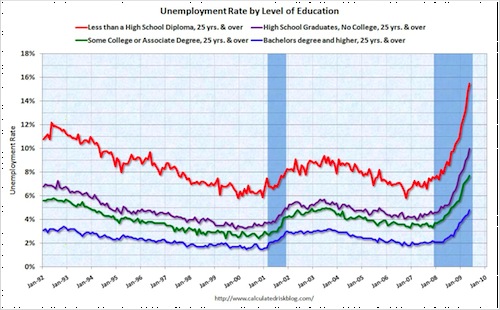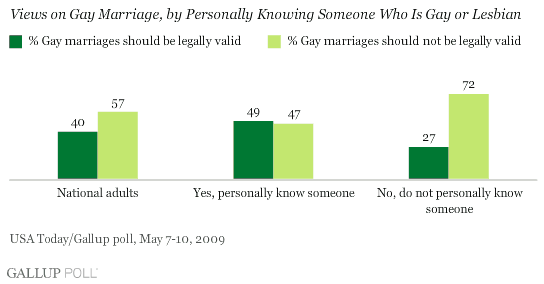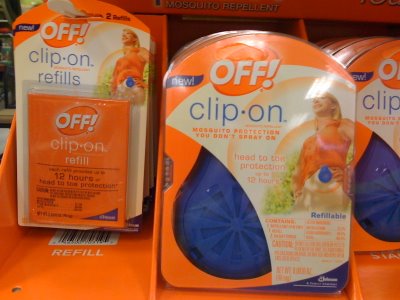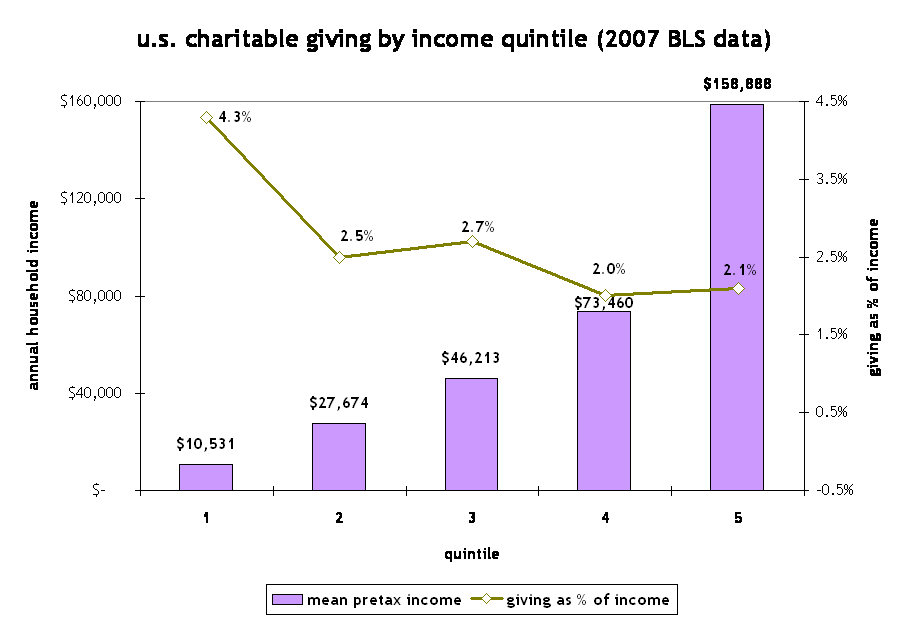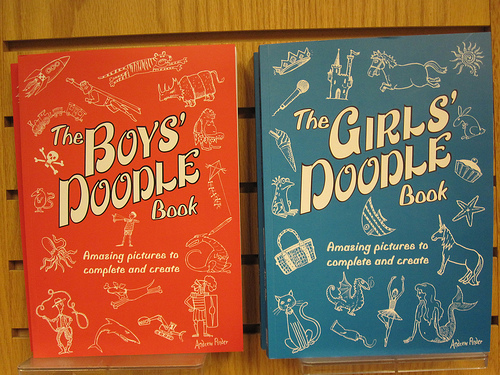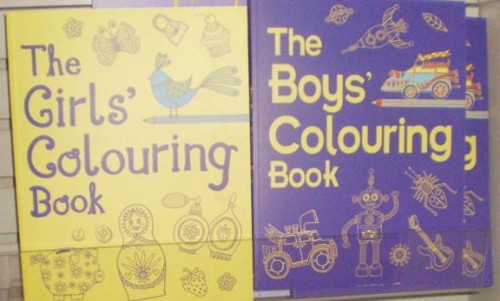Chris Uggen, at our sibling Context blog Public Criminology, posted an interesting graph showing that background checks for gun sales during the period from November to April for each year from 1999-2000 to 2008-2009. We see that they’ve increased significantly this November-April compared to previous years:

Background checks should serve as a decent proxy for gun sales, keeping in mind that not everyone who requests a check will eventually purchase a gun, not everyone who gets a gun bothers to go through legal channels and get a background check, and people who get a background check might then buy multiple guns.
Anyway, it appears that the reason for the jump in sales may be the election of President Obama (although as Chris points out, it’s possible the recession or some other factor could be driving it). When I mentioned this to a couple of friends, they assumed it meant some crazy White people were preparing for a race war. I presume that is true for some people, and that some of them are my relatives. However, there’s another explanation, which is what most news stories I googled report and which, having talked to a number of very right-leaning individuals I happen to know, seems more likely to me: with a Democratic controlled Congress and a Democratic President, many people are convinced that gun control is right around the corner, and they are taking advantage of the period before guns can be outlawed to stock up, with the hopes that after guns are outlawed, they can either hide them or maybe people who bought theirs before the law was passed get to keep them.
I haven’t seen as much news coverage of it, but in addition to gun sales, apparently bullet sales have gone up. My friends and family members who have guns have been complaining about the increasing price of bullets, as well as their scarcity. I was recently with a friend who is a police officer and needed to buy some bullets for shooting practice, and when he asked at Wal-Mart, the price was much higher than usual (I don’t remember the specific price, just that he said it was high) and they only had one specialty kind in stock; the rest of the shelf was bare.
So anyway, it’s sort of an interesting social trend that appears likely to be related to Obama’s election and the fear of liberals taking away guns (something I find highly unlikely), though I’m open to other explanations.
And as for why I don’t object to my friends and relatives having guns and buying bullets, I have a friend who is a police officer, so he has to have a gun while at work, and I gave up long ago on my family members, who are mostly ranchers and hunters; I’ve settled for being happy that my grandma shoots a lot fewer things than she used to.
UPDATE: In response to my story about going to Wal-Mart with my friend and checking on the price of bullets, Jeremiah says,
I question the veracity of this anecdote. In all my years of firearm ownership, only the most n00b newbz buy retail ammo for ‘practice.’ Everyone else buys repacked rounds at a HUGE discount.
People call me dumb or question my interpretation frequently enough, but being called an outright liar is new. I did, indeed, go to Wal-Mart with my friend Clint, who is a cop, and he went to the gun section and asked about bullets. I just called him and asked what kind he was looking for; he said he asked about .22 bullets, and I asked what he needed them for. He said “just for practice.” I didn’t think to clarify if he meant official practice at the firing range, or informal practice as in “a group of my friends and I are going to drive to a field and shoot at stuff.”
Point being, I am many things: crazy, bossy, sometimes overdramatic, a bit cranky. I am not, however, a liar.
UPDATE TWO: Joshua provides more information on background checks:
In states like Georgia, without a mandatory waiting period (the majority of states), the background check occurs at the time of purchase. The dealer makes a phone call, gives your identifying information, and in most cases gets an instant answer. At that point, you purchase the gun and away you go. The idea that someone would “request a background check” and then not purchase a gun seems questionable to me, because it is the act of attempting to purchase a gun that triggers the background check.
…
There are many legal channels for buying a gun without a background check. Only gun dealers are required to perform background checks. In most states, non-dealers can sell or give away guns just like they can sell any other possession. No background check is required for so-called private-party sales. There are limits on the number of guns a person can sell before they become a de facto dealer. A few states amend the federal requirements by requiring all gun sales to go through a dealer, who typically charges a small fee for the service.
…
Also, in states who issue concealed-carry permits, and whose permit requirements meet federal minimum standards, people who have a permit can buy firearms without a background check. The thinking is that the federal minimum standards mean that a permit-holder has already been vetted to a much higher degree than the NICS check system does, and at that point, NICS is redundant. This serves as an incentive for states to meet the federal recommended standards for carry permits.


